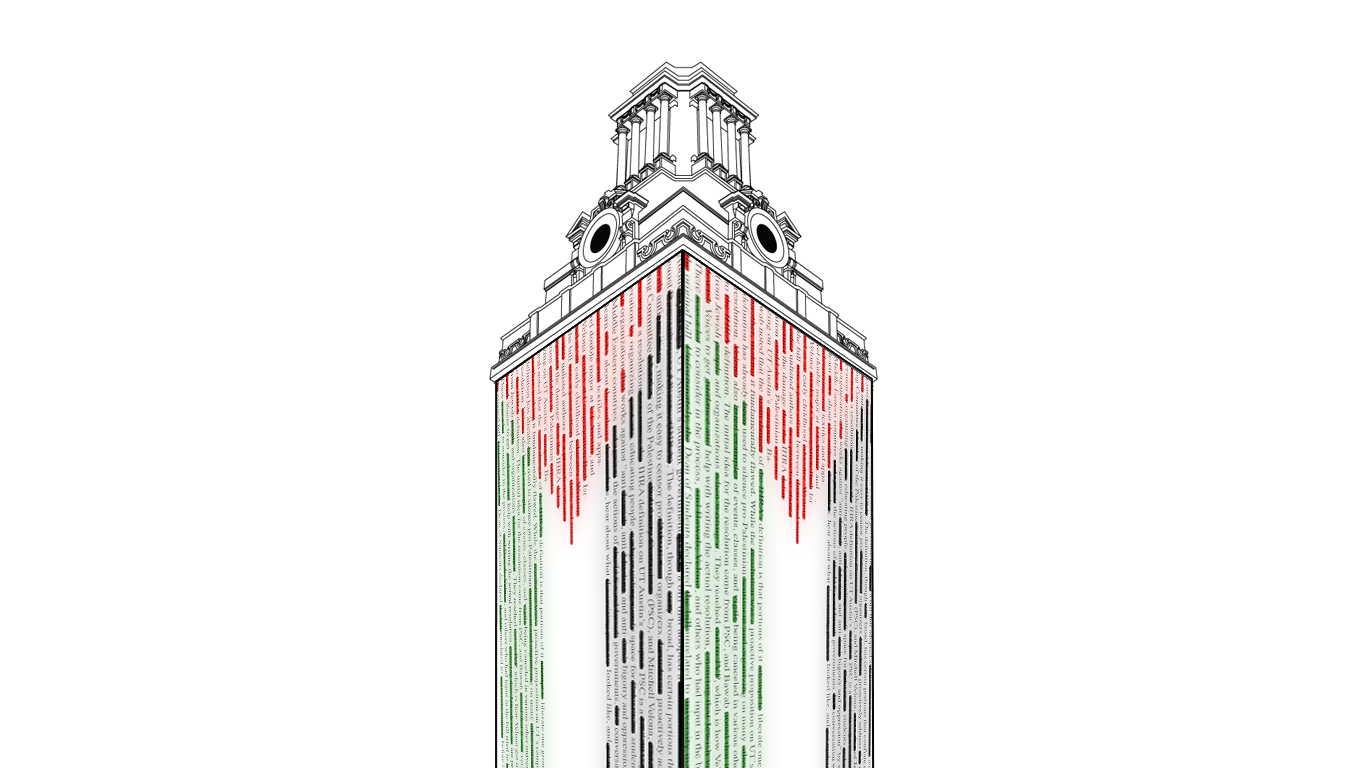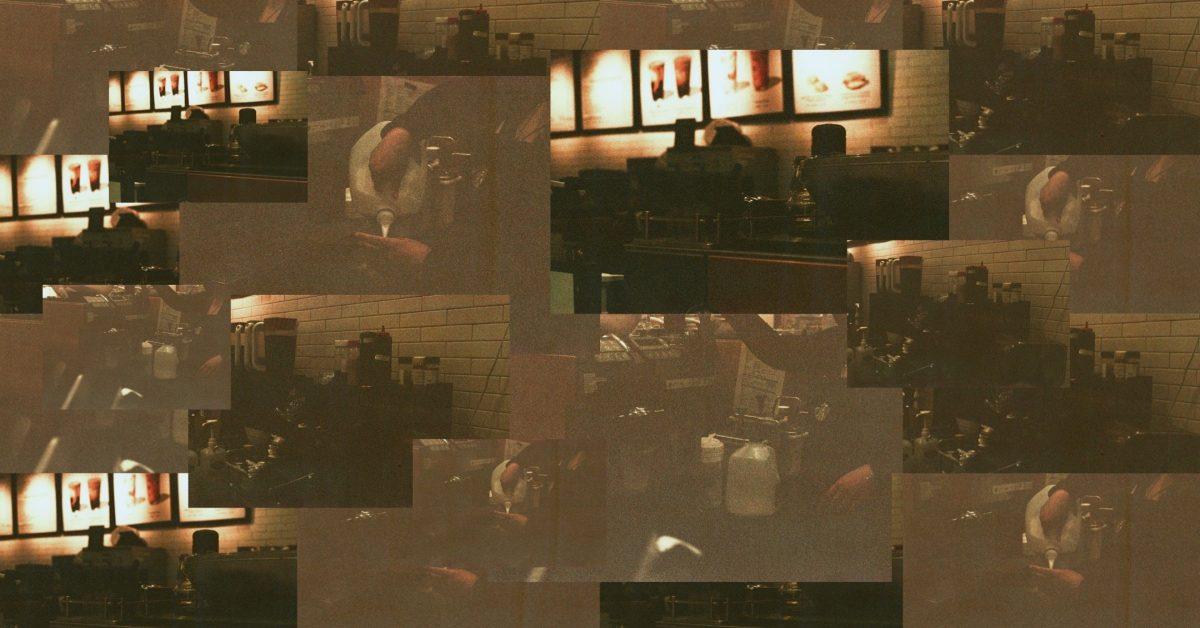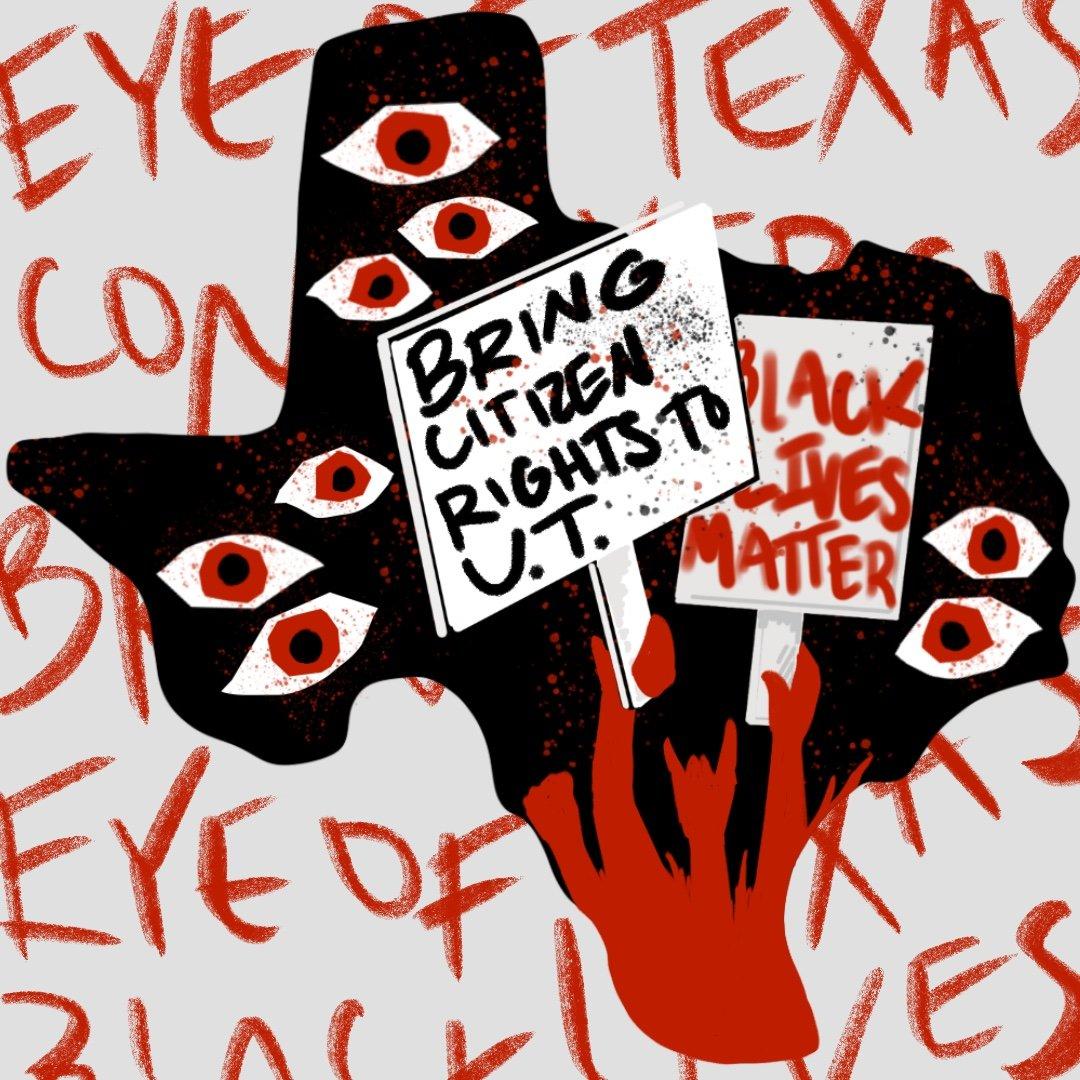Story by Sandhya Maddali // @sandhyamad // she/her/hers
Design by Spencer Hickman // @spencer.hickman // he/him/his
About a year ago, UT Austin’s student government passed a bill that adopted a definition of antisemitism written by the International Holocaust Remembrance Alliance (IHRA). The definition, though very broad, has certain portions that conflate criticisms against the state of Israel with antisemitism, making it easy to censor pro-Palestinian organizers. In order to proactively address this censorship, Nura Bawab, a Steering Committee Member of the Palestine Solidarity Committee (PSC), and Mitchell Velona, a member of Jewish Voice for Peace (JVP) co-wrote a resolution to remove the IHRA definition on UT Austin’s campus. PSC is a student organization that works toward Palestinian liberation by organizing protests, educating people, and providing a safe space for Palestinian students and culture, among other things. JVP is an organization that works against “anti-Jewish, anti-Muslim, and anti-Arab bigotry and oppression” by working toward harmony among Middle Eastern countries and against the actions of the U.S. and Israeli governments.
In a conversation with both coauthors, I was able to learn more about the authors themselves, hear about what the writing process looked like, and get updates about the bill. Bawab is a fifth year advertising and textiles and apparel double major at UT Austin, and Velona works at Congregation Beth Israel as an early childhood educator. Writing the bill was a joint effort between them and some other unlisted authors as a proactive stance against the damage that the IHRA definition could do to Palestinian organizing on UT Austin’s campus. Bawab noted that the main danger of the IHRA’s definition is that portions of it attempt to liberate one group, while simultaneously oppressing another, making it fundamentally flawed. While the resolution was a proactive proposition on UT’s campus, Velona clarified that the IHRA definition has already been used to silence pro-Palestinian sentiment and organizing on many other university campuses, as is outlined in the resolution. Velona also listed examples of events, classes, and vigils being canceled in various other universities, all of which were attributed to the IHRA definition.
The initial idea for the resolution came from PSC, and Bawab noted that it was very important to them to get input from Jewish people and organizations when writing it. They reached out to JVP, which is how Velona got involved, as well as Independent Jewish Voices to get guidance and help with writing the actual resolution, ensuring that Jewish voices are prioritized in the writing process. There was a lot to consider in the process, and Bawab, Velona, and others who had input in the bill tried to keep all of it in mind when writing the original bill.
Unfortunately, the Dean of Students declared the bill unrelated to university matters before it got a chance to be voted on. Velona commented on the irony of this, as the original legislation introducing the IHRA definition was not met with similar comments by administration, yet the legislation opposing the definition was considered irrelevant to the university. Bawab said that, if the resolution was to be presented, they must remove UT Austin logos and affiliated text, and disaffiliate with student organizations as well as with the university as a whole. They were sent a template of what the resolution would look like after all these changes, and it was essentially blank. In order to protest this decision, PSC has created an email campaign against UT Austin’s administration. Participating is super quick and easy, and it could go a long way in catching the attention of the administration and fighting censorship of pro-Palestinian organizing! PSC also furthered the campaign of “collective struggle in the face of repression” through a series of events called Israeli Apartheid Week. Bawab clarified, “The idea behind this theme is that we understand that in order to dismantle global systems of oppression, whether that be through our fight on campus or in communities, this necessitates us to build power as a collective in order to achieve liberation for all oppressed people. We understand that despite backlash and pushback, we must continue to fight for a just future.”
Find out more about PSC events and announcements on their social media:
https://www.instagram.com/psc_atx/













































Dena Antowan • May 9, 2022 at 9:10 pm
Great story. I appreciate all the perspectives you included. Hope to see more of this content!